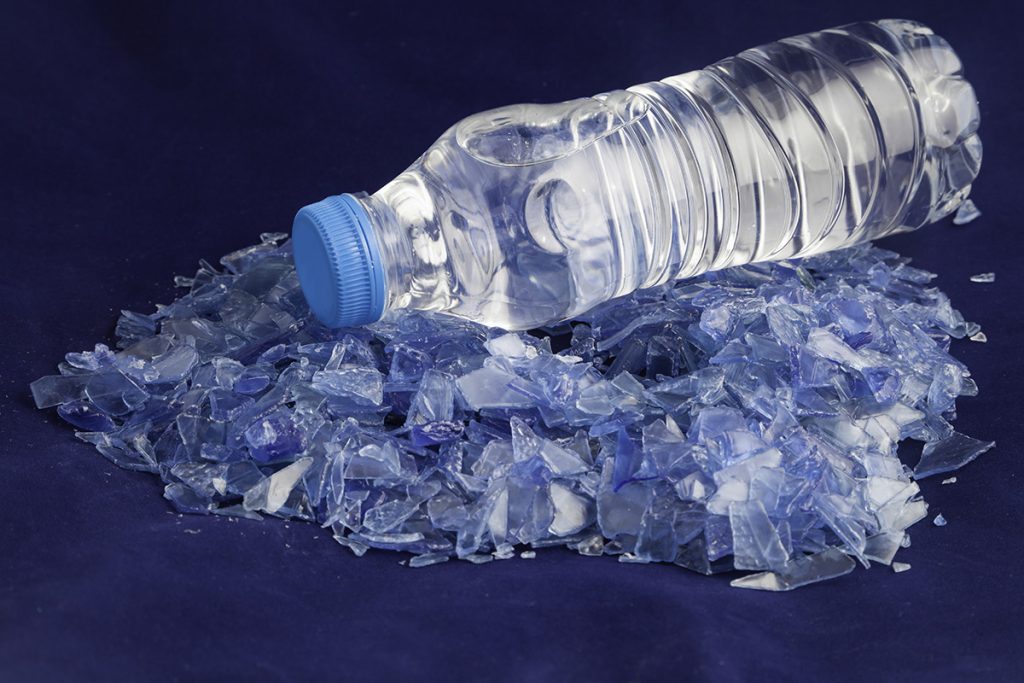
Bloomberg’s latest Circular Economy Company Ranking reported on corporate sustainability pledges, finding a theme of costs outweighing target progress. | Aykut Erdogdu/Shutterstock
A new report from Bloomberg’s market research division provides further evidence of brand owners struggling to meet stated recycled content goals due to a lack of available material and cost pressure.
Bloomberg on Oct. 3 released the latest edition of its Circular Economy Company Ranking, an annual publication tracking corporate sustainability pledges. It examines resin producers and brand owners, gauging how they’re doing on their stated environmental targets, as well as reviewing the ambition of their targets compared to each other.
The latest edition covers 40 companies’ 2023 sustainability reports, and although it found significant variance across companies, there was a theme of costs outweighing target progress.
“Our analysis reveals a slowdown in ambition to achieve a circular economy in 2023, with many companies highlighting difficulties in sourcing sustainable feedstock and materials, and a lack of infrastructure for sorting and recycling – all against the backdrop of rising costs,” the report stated.
Of the company tracked, 11 brand owners have recycled content consumption targets and 16 of the producers have recycled resin production goals. Most of these players are having some difficulty meeting their targets.
Danone and L’Oreal are the closest to meeting their 2025 recycled or bio-based content goals of 50%, with both currently sitting at over 30%. The report notes that despite their progress, they’ll have to “rapidly increase their recycled or bio-based content by around 8-10 percentage points per year, much faster than what they have achieved in the past.”
L’Oreal also has the most ambitious target of any tracked company, aiming for 100% recycled or bio-based content by 2030.
But across the brand owner sector, Bloomberg found an “undersupply of high-grade recycled plastic in many markets is stifling brand owners’ ability to achieve their targets, resulting in some delaying or revising their goals.”
That’s visible in PepsiCo removing a 2025 target to use 25% post-consumer resin from its goals and replacing it with a 50% goal for 2030, according to the Bloomberg report. And it’s visible in Unilever modifying its targets after publicly proclaiming it would fall short earlier this year.
“Some brands are focusing more on targets to cut their absolute virgin plastic packaging use altogether by light-weighting, re-designing and investing in reusable and refillable packaging,” Bloomberg stated. “Reducing absolute packaging use can also contribute to the net-zero targets of companies.”
On the production side, Bloomberg noted that 14 tracked companies have specific volume goals for recycled or bio-based resin production by 2030, and that if they all met those goals, they would together supply 15.5 million tons per year of these resins. But the report added few of these producers have disclosed their progress towards those volumes, and that “many are still waiting for more recycling capacity to be commissioned.”
“Companies also face challenges in sourcing scrap or sustainable feedstock to produce circular plastics,” the report noted, adding that resin production overcapacity and weak demand created additional pressure in 2023.
In lieu of adequate mechanical recycling capacity, these firms are banking on chemical recycling, Bloomberg reported, noting that almost all tracked producers have invested in chemical recycling projects. The analysis found “chemical recycling capacity could reach around 5.3 million tons by 2030, if all the announced capacity comes online.”

